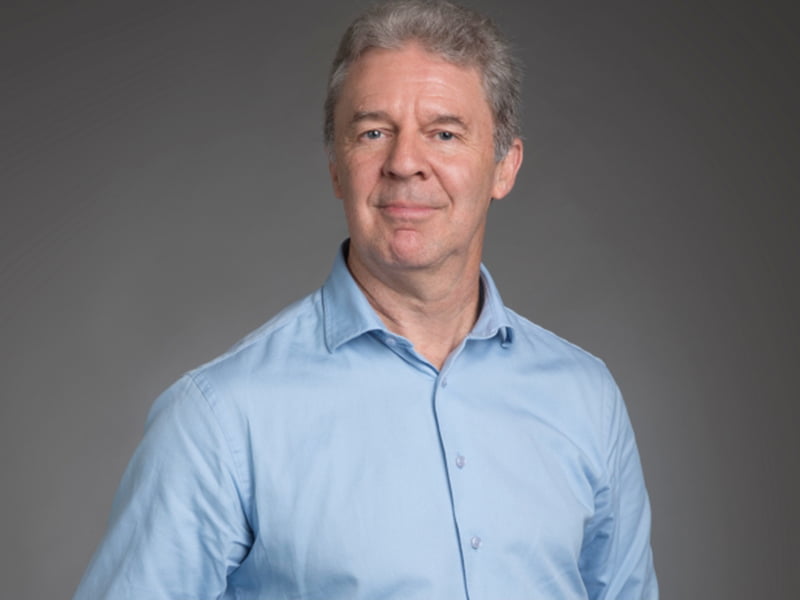Australian space companies need to be either “full stack” or have additional terrestrial applications for their products to attract the market’s shrinking venture capital, according to Main Sequence Ventures partner Martin Duursma.
Mr Duursma and the $540 million venture capital arm of the national science agency are currently monitoring around 50 Australian space startups in anticipation of a global market forecast to be worth trillions of dollars.
Only a handful of the local companies have what Mr Duursma describes as a “full stack” space offering, giving them truly global scale and the potential massive return VC funds need to justify long, risky investments.
On Thursday at a Space Industry Association of Australia event, he urged the rest to start thinking about customers back on earth if they want to land VC backing, which is expected to contract after a record 12 months.
“In the 2021 calendar year about $15 billion was invested into space startups globally. That was over double the 2020 figure. I expect that number to drop substantially this calendar year,” he told the Sydney event with delegates from across the Australian space and investment sectors.

It means companies need to be clear about what they offer VC investors, typically looking for at least a 3x return over a decade long investment, according to Mr Duursma.
The high return is needed because the successful companies need to offset the failures and only-marginal returns of the fund, which typically backing 20 to 25 companies, he said, going on to explain VC investors are looking for either “full stack” companies or ones with additional terrestrial uses cases.
Full stack companies offer a product or capability that is a complete solution in a space sector like satellites and launch services or earth observation. Main Sequence, with the largest deep tech fund in Australia, is already backing at least three – IoT satellite company Myriota and ground station service company Quasar, and launch outfit Gilmour Space Technologies.
Myriota sells low-cost satellite IoT connectivity products and infrastructure. But the sale of the devices are essentially a cost recovery exercise, with Myriota expecting to make its money from recurring data charges.
“You could see how that type of business could scale to large recurring revenue streams,” Mr Duursma said.
Quasar, meanwhile, offers a “ground station as a service” to the rapidly growing number of satellites in low-earth orbit.
The company is attempting to disrupt one of the most expensive parts of space operations, Mr Duursma said.
“You could spend a million dollars building a small-sat cubesat, but then you could spend a further $200,000 per year on the downlink charges to your satellite. Seems a little wacky.”
Quasar’s solution is a product can talk to 100 other satellites at one time, greatly improving the limits of ground stations.
“The satellite operator can task Quasar to downlink its data and transfer the results to the end customer. So [it is] a full stack solution,” Mr Duursma said.
These companies are few and far between in Australia’s burgeoning space sector, according to the Main Sequence partner.
The rest are typically “component” companies – offering sophisticated products like solar panels or an advanced thruster. The companies’ offering will only ever form part of a larger space ecosystem, making it harder to scale and placing a ceiling on their revenue.
“It’s going to be really hard for those companies to present a model to a VC investor that shows how they can scale to be delivering hundreds of millions of dollars of revenue,” Mr Duursma said.
“So what they need to do is find a terrestrial application of their technology.”
Main Sequence backed Sydney based navigation technologies and robotics company Advanced Navigation, which it considers a component company, but one which multiple non-space applications as well.
The company began by developing the inertial navigation systems that can provide positional data without GPS for planes, cars, and submarines. It then moved from the terrestrial applications to a spacecraft, and last month signed a deal to be part of the NASA’s Artemis mission.
The terrestrial applications make the company much more attractive to VC investors, Mr Duursma said, who also need global export potential.
“For a VC investor like Main Sequence, we need to find the right space opportunities that we think we can grow starting with an Australian base, but also needs to be focused on export markets from day one,” he said.
“The Australian market is way too small for us to grow these large opportunities. Without exporting, we’re never going to get those large businesses and the companies need to have the potential to grow to multi-100-million-dollar revenue streams, again, driving that big valuation. So that’s the lens that us as a VC investor looks at with every investment.”
Do you know more? Contact James Riley via Email.

